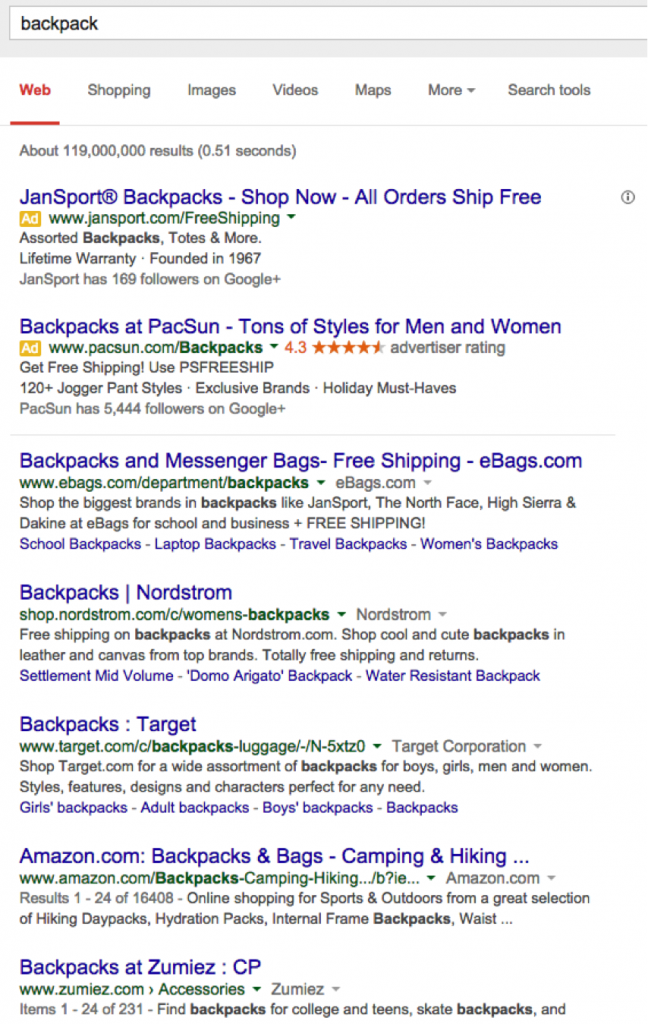I was recently discussing new trends in digital marketing with a mentor of mine, a brilliant marketer whom I met while attending Full Sail University. She asked me what kind of emphasis we put on keywords here at WTM Digital, and I was surprised to hear that her company no longer worries about keywords. They believe that having the right copy is more important. I agreed with her to a point, but reminded her that if you focus on keyword intent and develop a strategy to rank for sale-oriented keywords you can target more valuable traffic for your site.
Last year, I wrote a post about keyword research, so when my manager gave me the idea of discussing the importance of keyword intent, I jumped at the opportunity. It’s true; many agencies have led clients astray by placing too much emphasis on keywords. They urged clients to build all of their content around certain keywords, stuff those keywords in page titles, Meta descriptions, and—even though Google ignores them—place 12 keywords in the keyword tag. What is the problem here?
First off, they are focusing on “Keywords”—normally one-word or two-word phrases that everyone in the industry goes after—and likely ignoring other things like user experience and conversion rate optimization (CRO).
Second, they are walking a dangerous line of being penalized for keyword stuffing. The proper process is to do research and brainstorm. Get inside of the searcher’s head and ask yourself: “If I were looking for this product, how would I be searching for it online?”
Let’s start off with an example to illustrate the importance of understanding keyword intent and how to incorporate it into your digital marketing strategy. A new retailer specializing in handbags and travel bags wants to improve their conversion rate by getting their products in front of more qualified traffic. The initial step is, and should be, keyword research. But you’re not just looking for any old keyword relevant to handbags. Good companies know the difference between topically relevant keywords and keywords containing purchasing signals. After reading this post, you will too.
Keywords
What you should not be doing is building your site around keywords like “bags,” “purses,” “backpacks,” “book bags,” “Coach bags,” “handbags,” “duffle bags,” “Louis Vuitton,” “Prada,” “Finley,” “Wallets,” and so on. Think about it; everyone, including distributors, uses these terms in their site content. These generic terms are highly competitive and add little to no specificity to a user’s search. Here is what I see when searching for “backpack” in Google.
There are a plethora of options to choose from, but Google has no idea what type of backpack the user is looking for. It can only do its best to satisfy the query by serving pages that have helped others looking for some type of “backpack.”
If you were going to buy a new handbag, would you only type “purse” into the search box? Probably not! In fact, you most likely have at least a few ideas of the kind of purse you want, right? Maybe a “Lucky Brand leather satchel” or a “black and white tote bag with gold clasp.” Maybe you’ve seen a few things on Pinterest, and you’re looking for a similar product. Someone searching for these specific terms knows what he or she wants to buy before even entering a query, placing this user further down the purchasing funnel and closer to conversion. This is why we focus on intent.
Keyword Intent
Instead of focusing on words, we should be using phrases that have purchasing signals in them. Instead of searching for “Coach Bags,” we might focus on “Coach shoulder bags for sale,” or “small Kelsey Crossbody Coach.” Instead of “duffle bags,” we might focus on “Oakley 85L Large Sport Duffel” or “carry-on duffle bags.” These phrases show a buyer’s intent and are more likely to drive sales and conversions. These keywords are obvious choices for product pages and e-commerce websites.
Even further down the sales funnel, keyword phrases that include indicators like “purchase online” or “free shipping” or “buy” are great for incorporating into other focus keywords. These phrases can be a great addition to e-commerce store pages.
For non- e-commerce websites, keywords that signal an intent to convert would be, “quote for ____”, “cost of ____”, and etc. These are users that are in the middle of the sales funnel, and present a unique opportunity. By providing more information and targeting those keywords, a user is more likely to remember you and may even convert.
Google changes, but the function of the search will never die. Its purpose is to provide the most relevant information based on a user query. Users still need to use keywords and phrases when searching for a desired product or service. The theory of keywords not being important is just that: a theory. However, the way we use keywords is changing and evolving, our strategies need to do so as well. Remember, when doing your keyword research, make sure the focus is on sales oriented terms and keyword intent.


